
If you're interested in DIY-ing a flashlight with Seoul Y11 WICOP LEDs, this article might be worth a look.
You'll need a few pieces of Seoul's dual-color-temperature LED boards, as shown in the picture below.
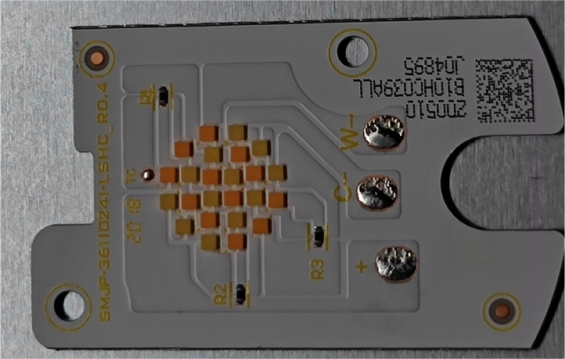
The LED board above is made of two channels of different color temperatures, each using 12 Y11 LEDs in a series configuration. What's interesting about this LED is that it uses WICOP technology, which is similar to CSP. It can emit light from five sides and achieves high power output in a very small package. According to the datasheet, a single LED can reach up to 3V at 700mA—an impressive 2.1W.
As you can see in the image below, comparing it with a standard 2835 LED really shows how small the 1.1 mm × 1.1 mm Y11 package is.
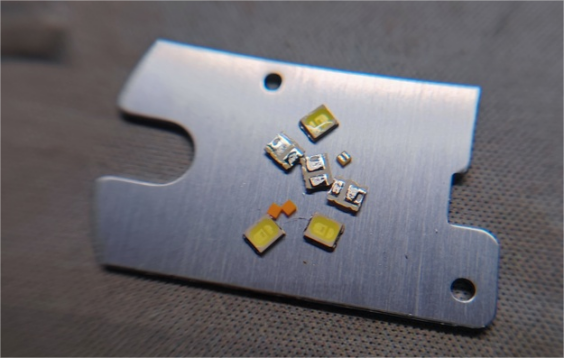
You can have a 4×4 array LED board made, as shown below.
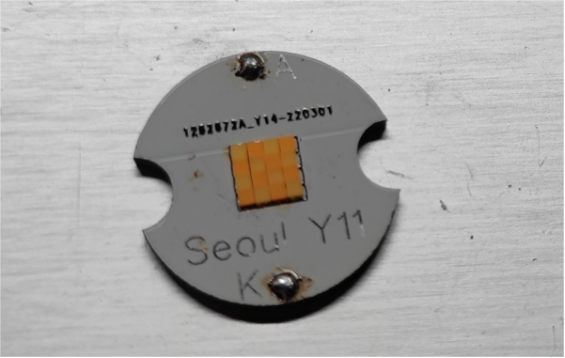
But this design has a couple of big issues. First, because the LED emits light from five sides, installing them so close together affects the total light output. Second, this PCB can't really handle the full-power load of the Y11 LEDs. If you only run it around 5W, then it'll be fine and you won't run into major problems.
Next, you'll need a T6 zoomable flashlight, something like the one shown below.
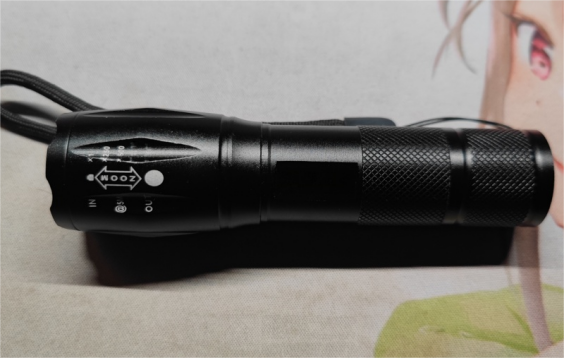
It uses a single 5050 LED.
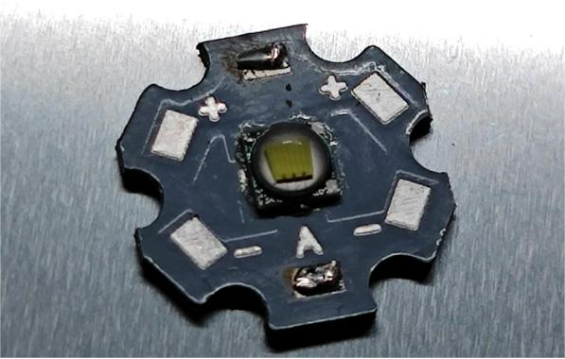
The flashlight head is hollow, and its outer design looks a lot like a heatsink.
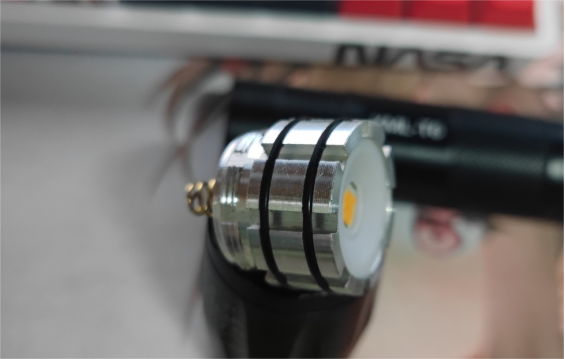
The LED array is about 4.5 × 4.5 mm, and it fits into the 5050 positioning ring without looking out of place.
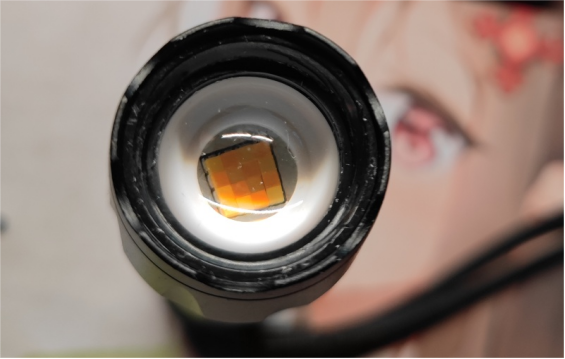
When you zoom the beam, it can project a checkerboard pattern, as shown in the picture below.
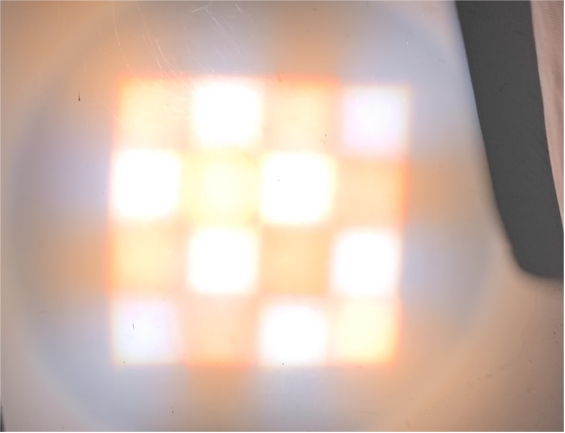
This kind of zoom flashlight produces a wide and even beam, which makes it great for finding things indoors.
Also, the mix of cool and warm LEDs results in a color temperature of around 4000K. The light feels very comfortable, and the color rendering is quite good. Compared with Nichia's B35AMT (Ra > 90, R9 > 80), it's not inferior at all.
The end.




